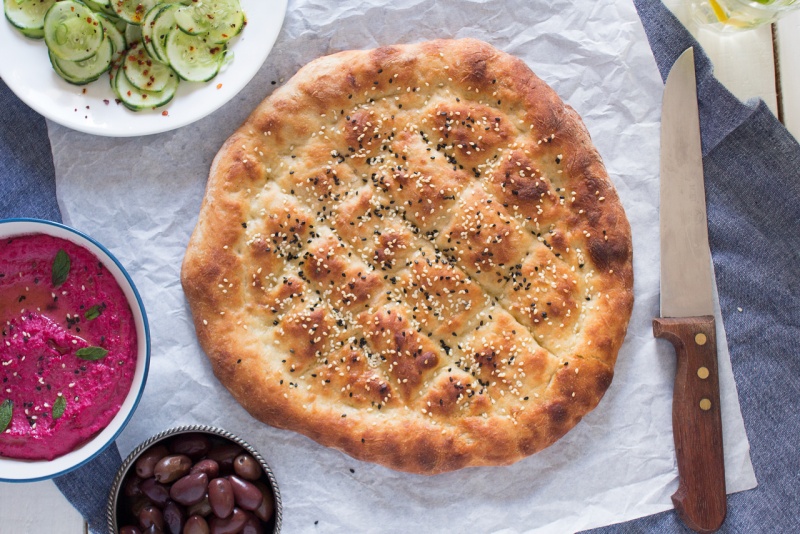
As I have mentioned before, both me and Duncan have a soft spot for a particular type of Turkish bread – flat, fluffy loaf traditionally eaten during Ramadan. Sometimes, it’s topped with sesame seeds, sometimes with pul biber (Turkish chilli), either way it is delicious.
We got hooked on it when we used to live in North-East London next door to a Turkish bakery. They sold these amazing Turkish breads, straight from the oven, for 80p each and their tantalising smell made it impossible to go past without buying some! It’s fabulous when it’s still warm and fresh, but even a day or two later it tastes delicious cut into thin strips, lightly toasted on a griddle pan and served with a selection of mezze dishes to dip it into.
Since we no longer live in London, now I have to twist Duncan’s arm to make us Turkish bread now and again. To be honest, he is not that resistant to it as this is one of the easiest breads you’ll make.
It requires no kneading! You cannot believe it? I was a bit sceptical too, but try it – proof is in the erm…bread. It’s light and airy, full of air pockets and so irresistible that you’ll wanna eat the whole loaf at one sitting. Just a word of warning, don’t do it if you intend to go running an hour later. This last bit of info is NOT BASED on personal experience at all:).
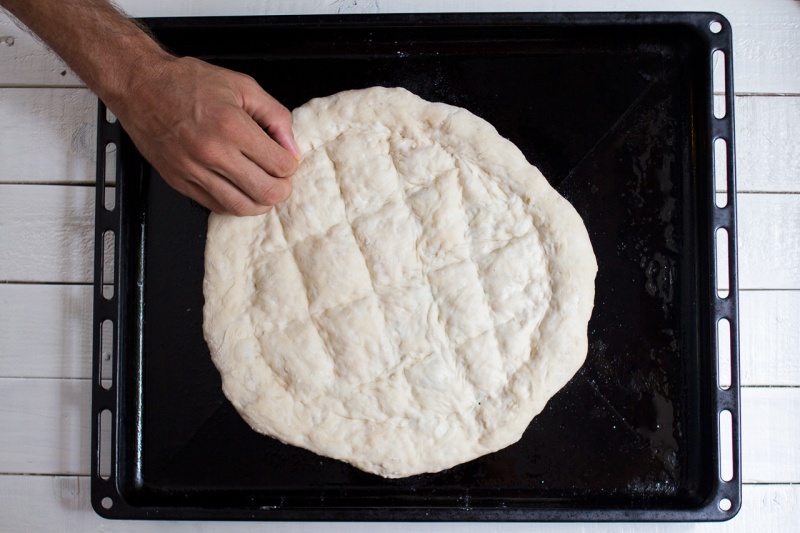
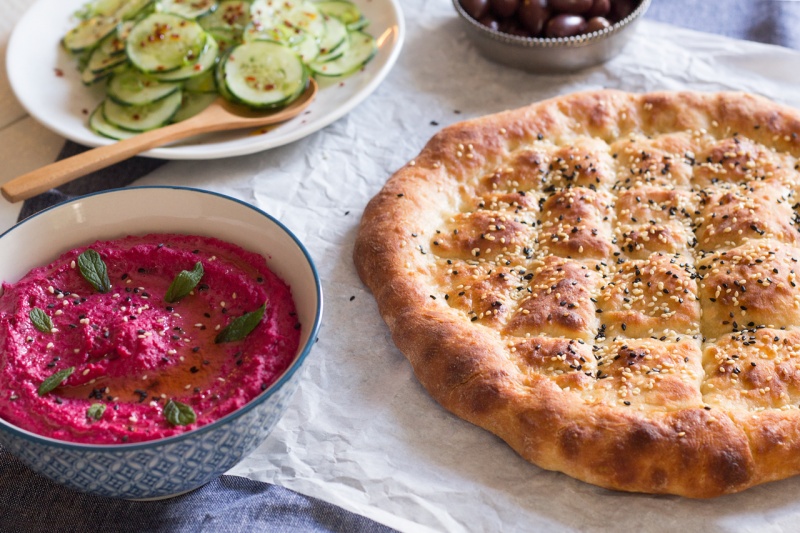
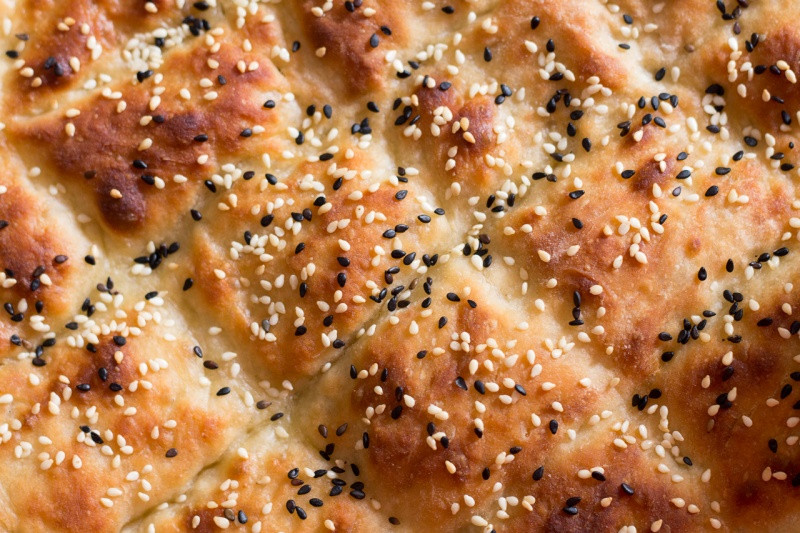
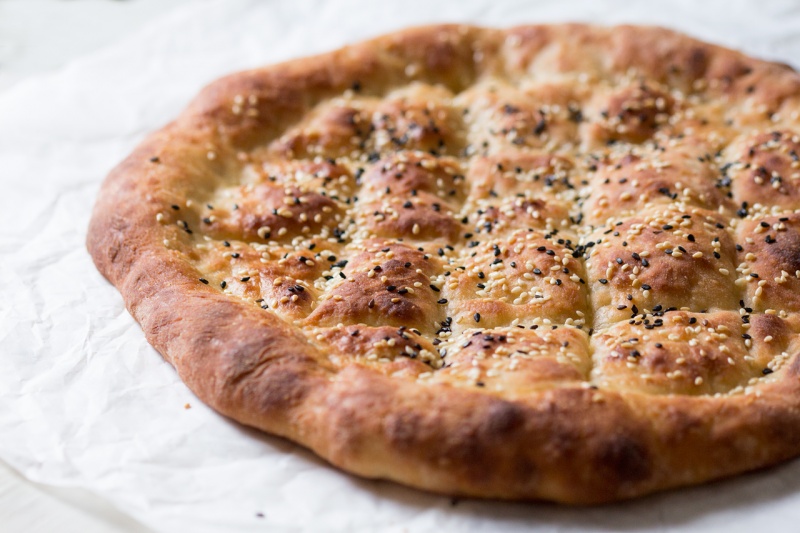
- 250 g / 2 cups bread flour
- 7 g / 0.25 oz / 2¼ tsp instant dried yeast
- 200 ml / ¾ cup + 4 tsp warm water
- 2 tsp caster/fine sugar
- 1 tsp fine salt
- 15 ml / 1 tbsp olive oil, for glazing
- handful of white and black sesame seeds
- Mix the flour, sugar and salt in a large mixing bowl.
- Create a small well in the middle of the flour and add the yeast. Pour the water into the well and mix everything together with your hands. At this stage the dough should be very wet and fairly hard to manage.
- Cover the mixing bowl with cling film and leave to prove for about one hour (or until it has doubled in size).
- Flour a work surface and tip the proven dough out on to the work surface making sure to add lots of flour to avoid sticking. Shape the dough into a flat circle (about 2-3 cm high).
- Place the dough on a olive oil-greased baking tray. Cover the dough with a tea towel and leave to prove for another 45 minutes. Preheat the oven to 250° C / 480° F in the last 20 minutes of this time.
- Dent the top of the dough by first drawing a rough inner circle (with your fingertips) of about 3 cm from the edge of the bread. Then fill in the centre of the inner circle with criss-crossed diagonal lines about 2-3 cm apart (see 2nd picture in this recipe to get the idea).
- Using a pastry brush, coat the top of the bread with olive oil. Sprinkle with black and white sesame seeds and press the seeds in as far as you can to make sure that they stay in the bread.
- Bake the bread for 8 minutes at 250° C / 480° F and then turn the oven down to 200° C / 390° F and bake for another 5 minutes (or until golden brown).

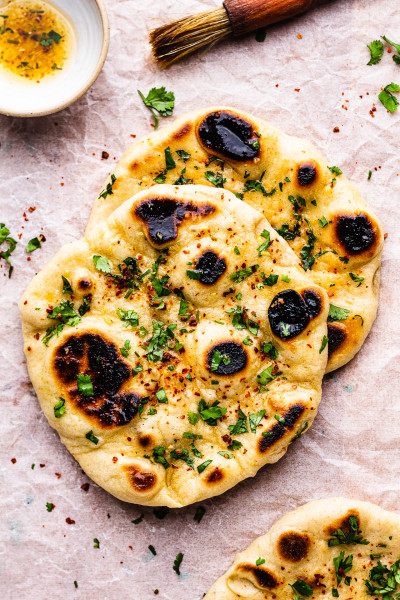

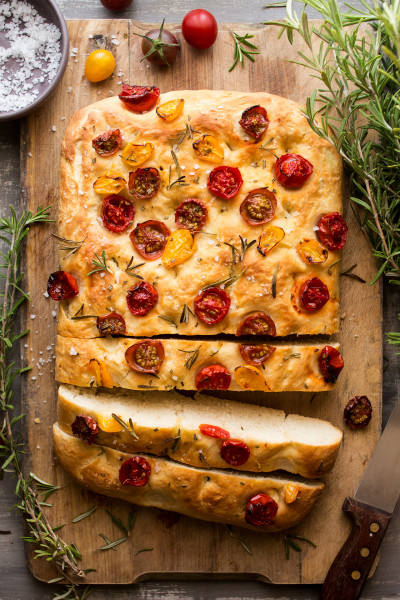
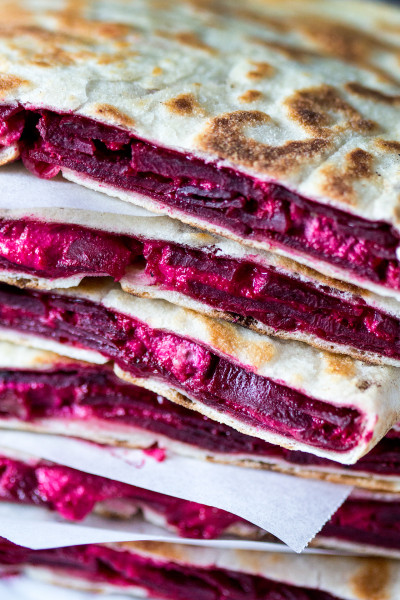
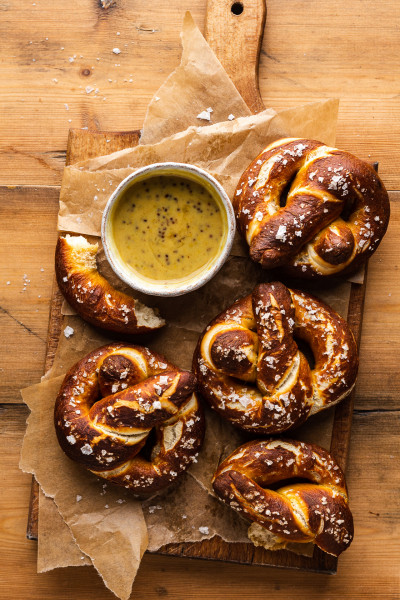
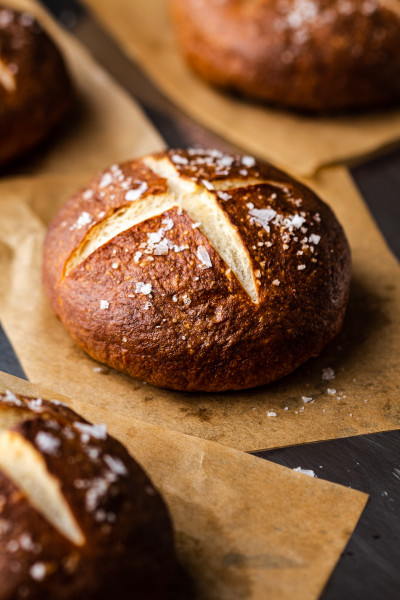

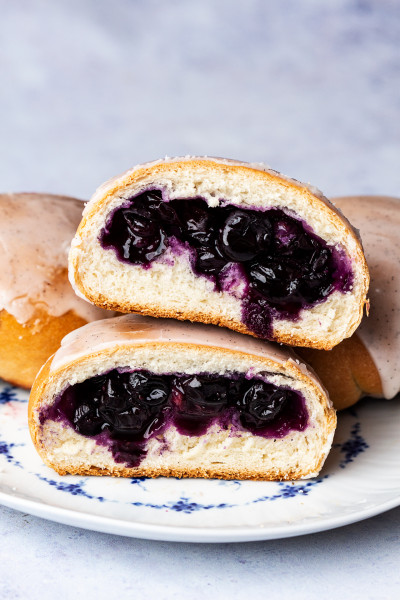
It's important to measure in a correct way, which boils down to fluff it up, spoon it into a cup and level it off and even then there are bound to ball small discrepancies as measuring flour using volume is inherently imprecise. This is why all bakers recommend using scales for dry ingredients. If you measure correctly a 240 ml cup of flour equals about 125 g so 2 cups is 250 g. Hope this helps and glad you are enjoying my recipe. Ania
You CAN print this recipe. There is a print button on the recipe card, right hand side, above the list of ingredients. I hope that helps. Ania
Nigella seeds really bump this bread up to the next level.
Thanks for sharing
Thankyou so much for this recipe
I haven't tried but it's a regular yeasted dough so if you have a good experience of freezing yeasted dough this one is no different. Hope this helps. Ania
thanks !
It's hard for me to be sure as I have not tried but I think it should work well. It's certainly worth a try. Ania
So great, so simple. Thank you
One problem though - it was gone so fast it didn’t make it to the table 😂
I’d like to make 3-4 loaves at a time but I’m not sure if I should just multiply the ingredients or some other adjustment is needed.
Question: Do you have a recipe for wholemeal Turkish bread, please. I would like to try some using whole meal flour NOT whole wheat flour. If so, could you please advise.
Thank you.
had it freshly baked with a beautiful Greek salad..
Then out comes the finished result, so lovely and fluffy. I even made a second run and replaced the seeds with chilli flakes and parsley (Added at last 5 minutes).
Thanks for sharing.
Tuned out brilliantly with a lot less clean up.